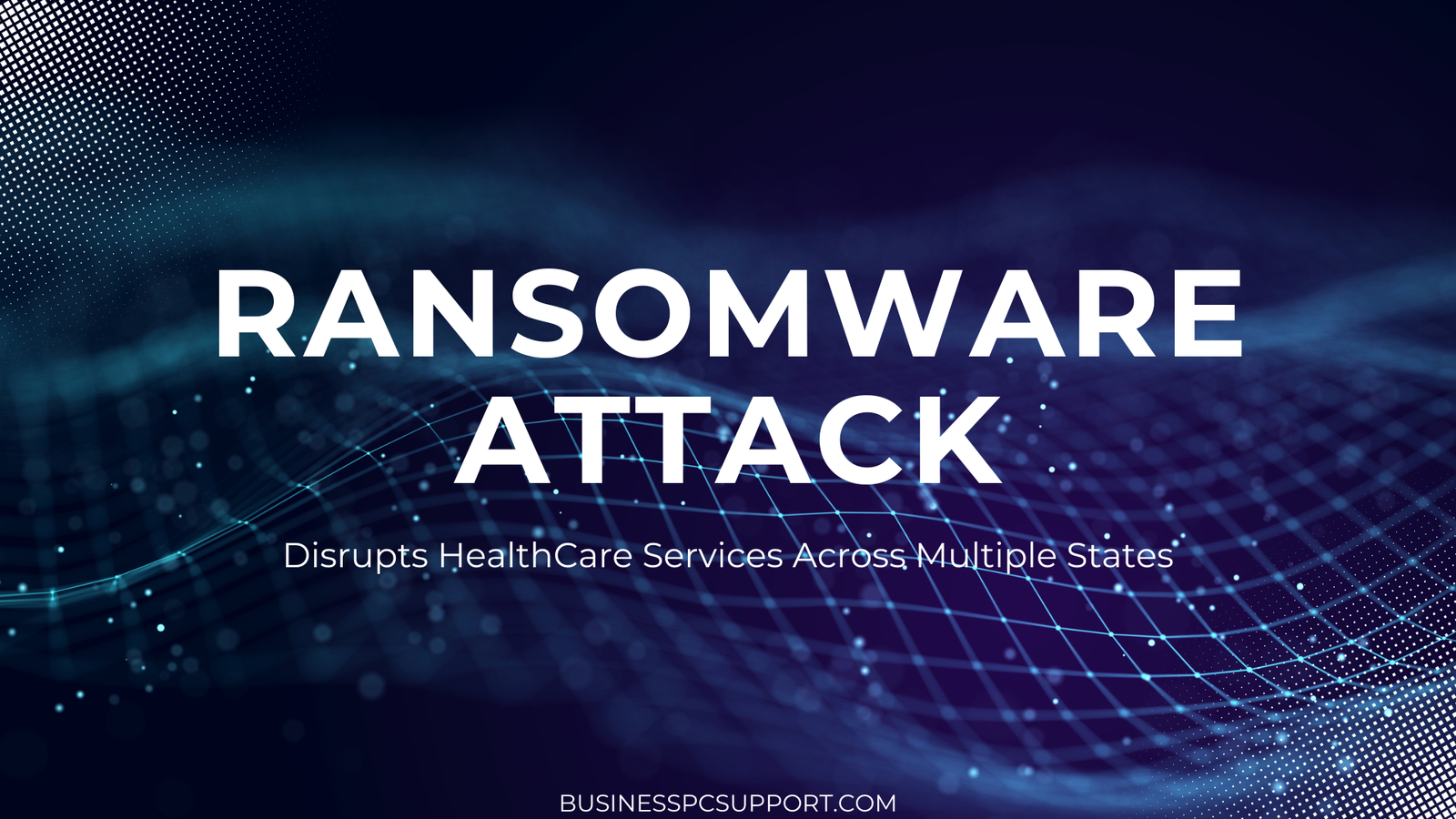Ransomware Attack Disrupts HealthCare Services Across Multiple States
Table of contents
A ransomware attack has caused widespread disruption in healthcare services across several states. This incident, targeting Prospect Medical Holdings, has raised concerns about the increasing vulnerability of healthcare systems to cyber threats. This exemplifies the importance of healthcare cybersecurity.
Key Impacts of the Ransomware Attack
On August 5, 2023, a ransomware attack forced Prospect Medical Holdings to shut down its systems temporarily. This health system operates 16 hospitals and over 165 clinics across Connecticut, Pennsylvania, Rhode Island, and Southern California. Addressing healthcare cybersecurity is vital to preventing such situations.
Disruptions at Affected Facilities
- In Connecticut:
The Eastern Connecticut Health Network had to close several locations, including imaging centers, urgent care clinics, and blood-draw services, which will remain shut until further notice (Eastern Connecticut Health Network). - In Rhode Island:
CharterCARE Health Partners announced delays and rescheduled appointments. Additionally, they switched back to using paper records due to the system outage (CharterCARE Health Partners). This highlights the challenges in maintaining healthcare cybersecurity. - In Pennsylvania:
Crozer Health facilities faced similar challenges, with computers being offline and staff relying on manual processes (Philadelphia Inquirer). - In California:
Outpatient and diagnostic services experienced significant delays, affecting patient care in the region (California Department of Public Health).
Operational Challenges
Since most hospitals depend on electronic health records (EHR), switching to paper-based operations has slowed down processes. Consequently, hospitals are experiencing delays in providing diagnostic results and managing appointments effectively (HealthIT.gov). These challenges underscore the need for robust healthcare cybersecurity measures.
Cybersecurity Risks in Healthcare
Unfortunately, cyberattacks on hospitals are becoming more frequent. Experts attribute this trend to the growing reliance on digital systems and cloud-based services, making healthcare cybersecurity more critical than ever.
Examples of Past Cyberattacks
- CommonSpirit Health (2022):
Over 140 hospitals were affected by a ransomware attack, which caused canceled surgeries and delayed patient care (NBC News). - United Health Services (2020):
Russian hackers launched a ransomware attack on 400 facilities, marking one of the largest cyberattacks in healthcare history (ZDNet). - One Brooklyn Health (2022):
A cyberattack forced staff to return to paper records, causing significant delays in patient services (Healthcare IT News). - University of Vermont Medical Center (2020):
A ransomware attack disrupted hospital operations for weeks, leading to canceled appointments and delayed treatments (FBI Cyber Division Report).
How Business PC Support Can Help Protect Healthcare Organizations
With cyberattacks on the rise, healthcare providers need robust security solutions to safeguard their systems. Business PC Support specializes in Zero Trust Security strategies, which offer advanced protection against ransomware and other cyber threats, thereby enhancing healthcare cybersecurity.
Key Services Provided by Business PC Support:
- 24/7 Threat Monitoring: Continuous surveillance to detect and neutralize cyber threats in real time.
- Zero Trust Security Frameworks: Ensuring all users, devices, and networks are verified before granting access.
- Proactive System Audits: Identifying vulnerabilities before attackers can exploit them.
- Employee Cybersecurity Training: Equipping staff to recognize phishing attempts and other malicious activities.
Learn more about how Business PC Support can strengthen your organization’s cybersecurity at Business PC Support.
Why Are Healthcare Systems at Risk?
The COVID-19 pandemic accelerated the use of online healthcare systems. As hospitals adopt cloud-based tools, telemedicine, and third-party services, their digital “attack surface” has expanded. While these technologies aim to improve patient care, they also create vulnerabilities that hackers can exploit (Harvard Business Review). Proper healthcare cybersecurity is essential to mitigate these risks.
How Can Healthcare Organizations Improve Cybersecurity?
To reduce the risk of cyberattacks, healthcare providers should focus on:
- Choosing secure technology vendors: Collaborate with vendors who prioritize secure coding and system updates (American Hospital Association).
- Partnering with cybersecurity experts: Engage trusted companies like Business PC Support for tailored protection strategies, emphasizing healthcare cybersecurity.
- Providing regular cybersecurity training for staff: Educate employees on recognizing phishing emails and other cyber threats (Cybersecurity and Infrastructure Security Agency).
- Conducting routine system audits: Regularly check for vulnerabilities in systems and networks (NIST Cybersecurity Framework).
Conclusion: The Importance of Cybersecurity in Healthcare
The ransomware attack on Prospect Medical Holdings is a stark reminder of the urgent need for stronger cybersecurity in healthcare. Hospitals and clinics must act now to protect their systems, ensuring patient safety and uninterrupted services. Prioritizing healthcare cybersecurity is crucial.
Organizations like Business PC Support provide the expertise and tools necessary to safeguard against these growing threats. As cyberattacks become more common, prioritizing cybersecurity is no longer optional—it is essential for the healthcare sector.




Comments are closed